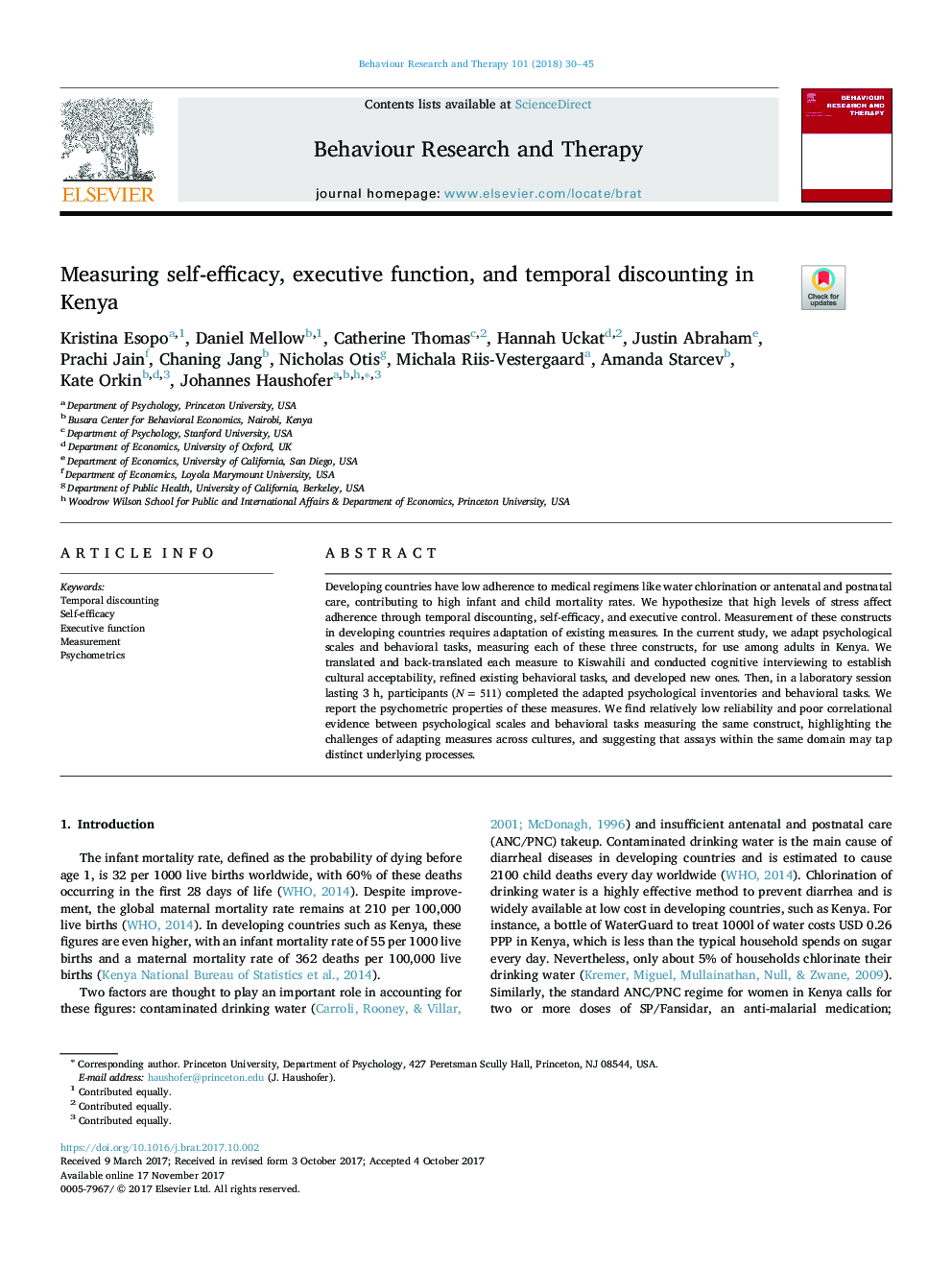| Article ID | Journal | Published Year | Pages | File Type |
|---|---|---|---|---|
| 7261901 | Behaviour Research and Therapy | 2018 | 16 Pages |
Abstract
Developing countries have low adherence to medical regimens like water chlorination or antenatal and postnatal care, contributing to high infant and child mortality rates. We hypothesize that high levels of stress affect adherence through temporal discounting, self-efficacy, and executive control. Measurement of these constructs in developing countries requires adaptation of existing measures. In the current study, we adapt psychological scales and behavioral tasks, measuring each of these three constructs, for use among adults in Kenya. We translated and back-translated each measure to Kiswahili and conducted cognitive interviewing to establish cultural acceptability, refined existing behavioral tasks, and developed new ones. Then, in a laboratory session lasting 3Â h, participants (N=511) completed the adapted psychological inventories and behavioral tasks. We report the psychometric properties of these measures. We find relatively low reliability and poor correlational evidence between psychological scales and behavioral tasks measuring the same construct, highlighting the challenges of adapting measures across cultures, and suggesting that assays within the same domain may tap distinct underlying processes.
Related Topics
Health Sciences
Medicine and Dentistry
Psychiatry and Mental Health
Authors
Kristina Esopo, Daniel Mellow, Catherine Thomas, Hannah Uckat, Justin Abraham, Prachi Jain, Chaning Jang, Nicholas Otis, Michala Riis-Vestergaard, Amanda Starcev, Kate Orkin, Johannes Haushofer,
